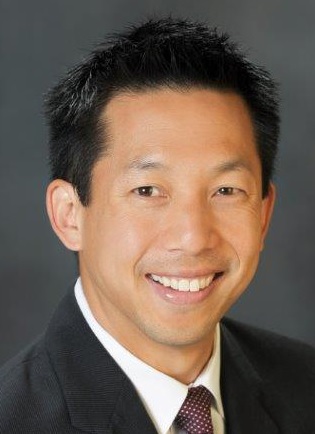By Brian Chou, OD, FAAO

July 19, 2017
These days, the light drawing newly minted optometrists to practice ownership may seem more like a distant flicker. With the financial realities of heavy student debt and supporting a family, the path to ownership is strewn with obstacles. Still, many of us aspire for “independent optometry,” lured to this concept like moths to the porch light. Indeed, it’s been a worthy and fulfilling journey for most, and I’ve experienced this firsthand. But today, I take the position that, at least for some, it’s no longer all that it’s cracked up to be.
As a profession, we struggle with some fundamental issues. One is: What is “independent optometry?”
Our esteemed colleague Mark Wright, OD, FCOVD, defines independent optometry based on the ability to make changes. For example, you are “independent” if you can set your own work hours, decide which third-party plans you accept, what fees you charge, the décor of your practice, what products you use, which staff you hire, and so forth. Who wouldn’t want these things? After all, freedom is a deep-rooted, celebrated American value. “Independence” seems synonymous with virtue, placed on a pedestal for all to marvel and move toward.
But does the privilege of making changes to your practice come at such a high cost that you become enslaved to your business?
In the report, “Private Equity and the Investment Effect,” I mentioned that I transferred ownership of my practice to a larger one in a private equity-affiliated deal. After 16 years of ownership, I now am an employee. I have ostensibly relinquished the ability to change the business. But, oddly, while I no longer pass Dr. Wright’s litmus test for being “independent,” I feel more independent in many respects. How is this possible?
I’ll tell you why.
Today, I am much more diversified against the financial risk posed by ill-guided online and remote refraction, online eyewear, and the de facto consumer ability to buy disposable contact lenses without a valid prescription. The office lease is no longer secured in my name with a personal guarantee. If a disgruntled former employee files a frivolous and unsubstantiated wrongful termination claim, the time expenditure and exposure to financial loss falls on someone else’s shoulders.
Further, I can take extended time out of the office without the discomfort of high fixed-overhead expenses mounting in my absence. If there is a staffing-related problem, I’m not burdened with smoothing it out. Maintenance interruptions, from the printer breaking down, to a plumbing leak, to the security alarm getting triggered after hours, are out of my hands. Network security, and complying with increasing regulatory requirements, are managed by someone else.
This isn’t to say there is a complete absence of stress, however.
I’m still learning as corporate changes are implemented, and to be sure, some of these changes – including conversion to a new electronic health record that is used mostly by physicians – have alienated loyal and longstanding staff. (The EHR functionality relevant to optometry seem like they were developed as an afterthought, and I am still reserving judgment on whether this EHR can maintain workflow efficiency for most optometric practices.) Additionally, despite the absolution of business management responsibilities, I have found it difficult to watch someone else take them over if performed without the previous level of skill, time expenditure and attention to detail. But for most urgencies (e.g., plumbing leak), any member in our office just notifies the director of operations to get it fixed.
In short, I can be a doctor.
As an employee, the concept to aspire to is that I can direct my attention toward caring for the patient, with minimal outside distractions. No longer must I direct a large part of my time and attention toward managing IT, regulatory compliance, risk management, human resources, advertising and public relations, accounting, business development, buying and inventory management, billing and collections, and so on. It’s not that I hate all those things. In fact, I enjoyed, and was good, at some of them. For those doctors who enjoy the business aspects more than clinical practice, the CEO approach described by another esteemed colleague, Neil Gailmard, OD, MBA, FAAO, is a sound and worthy model to pursue.
I believe that many optometrists will still experience the greatest feeling of independence from practice ownership. Yet for other optometrists, the right employment arrangement will provide the greatest freedom. There are merits to each modality, and what’s best depends on individual circumstances and personal preference. Fortunately, there are good opportunities for ODs to go from employee to owner, and vice versa. For OD-owners looking to transition to employment, private equity-affiliated consolidators offer a relatively new alternative to exit ownership – yet this path requires careful planning to reduce the risk of post-transfer surprises.
 Brian Chou, OD, FAAO, directs a referral-based keratoconus clinic at EyeLux Optometry in San Diego, Calif. He also serves as an expert witness for medicolegal claims involving optometric standard of care. To contact him: chou@refractivesource.com.
Brian Chou, OD, FAAO, directs a referral-based keratoconus clinic at EyeLux Optometry in San Diego, Calif. He also serves as an expert witness for medicolegal claims involving optometric standard of care. To contact him: chou@refractivesource.com.



























